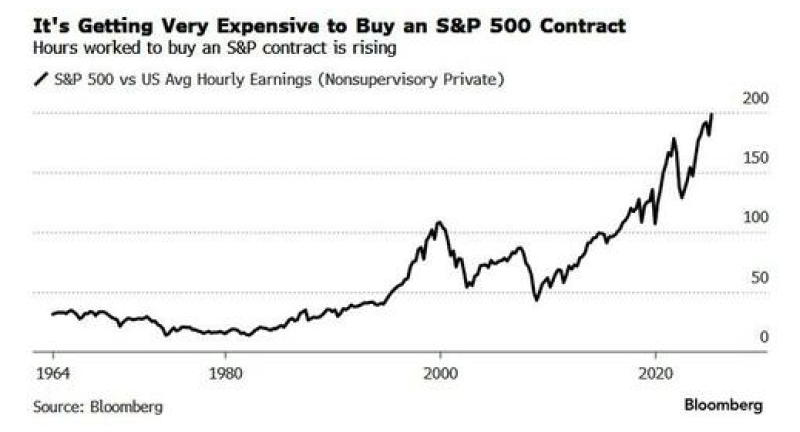The American stock market keeps hitting new highs, but there's a catch: regular workers are getting priced out. Bloomberg's latest data shows that buying into the S&P 500 now costs the average employee more working hours than at any point in modern history. While Wall Street celebrates record valuations, Main Street is working harder just to get a piece of the action.
Record 200 Hours Required for Single Contract
Recent Bloomberg data highlights a troubling milestone: American workers now need roughly 200 hours of labor to afford a single S&P 500 futures contract—the highest level ever recorded.

This metric compares the cost of S&P 500 exposure against average hourly earnings for nonsupervisory private-sector employees, showing just how far stock market gains have pulled away from typical paychecks.
How the Gap Widened Over Six Decades
The gap wasn't always this wide. From the 1960s through the 1980s, the required work hours stayed relatively flat, reflecting a time when wages and market performance moved somewhat in sync. That balance started breaking down in the late 1990s during the tech boom, then accelerated after the 2008 financial crisis. But the real spike came after 2020, when the chart shot upward at an unprecedented pace.
What's Fueling the Disconnect
What's driving this? The S&P 500 has been on a long bull run fueled by mega-cap tech dominance, rock-bottom interest rates, and aggressive corporate profit growth. Meanwhile, wages have crept up nominally but haven't kept pace with the market's explosive performance. Every rally pushes the ratio higher, and even during downturns, workers barely make up lost ground before the trend resumes.
What This Means for Everyday Investors
This widening gap raises real questions about who actually benefits from market growth and whether everyday workers can realistically build wealth through equities. As valuations stretch further beyond wage-based affordability, the next market cycle will test whether this distance narrows—or keeps expanding indefinitely.
 Usman Salis
Usman Salis

 Usman Salis
Usman Salis


